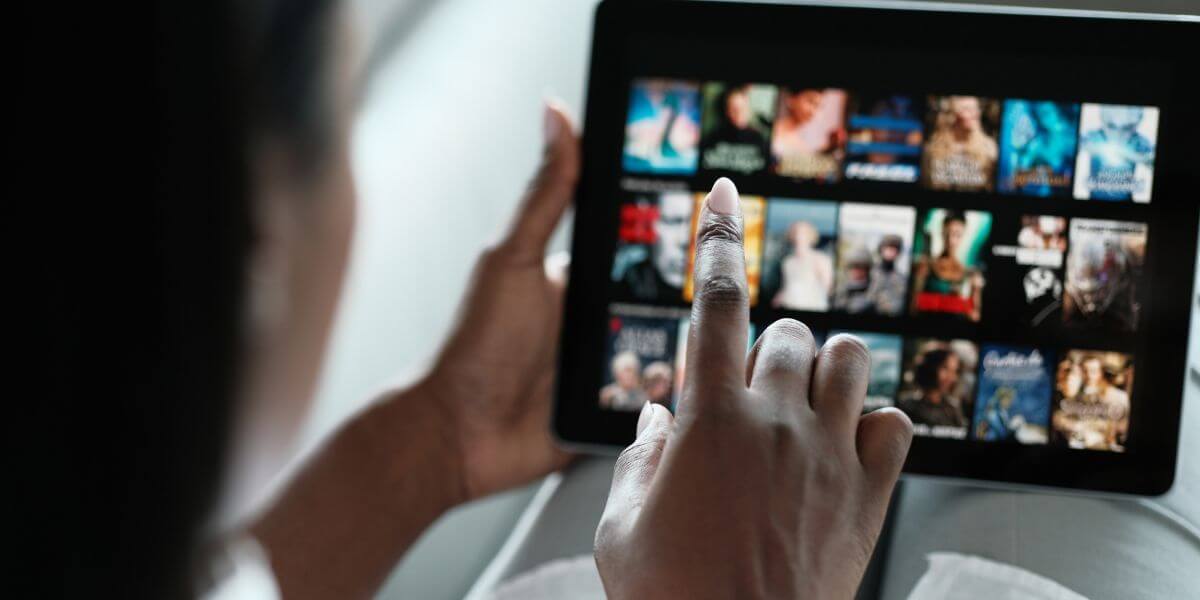Lower your internet bill
61% of people overpay for their internet.
Are you one of them?
Unlock exclusive offers in your area!
Call now
[tel]Enter zip code
1 Star is Poor & 5 Stars is Excellent.
* Required
Written by Sam Watanuki - Pub. Jun 19, 2025 / Updated Jun 18, 2025
Table of Contents
Are you happy with your Internet service?
About the author
When it comes to streaming your favorite shows and movies, the debate between smart TV vs streaming device goes beyond just convenience and features. One big factor that many households overlook is bandwidth consumption. With internet prices continuing to fluctuate and data caps still affecting many users, understanding which option uses more of your precious bandwidth can significantly impact your monthly internet bill and streaming experience.
The choice between using your smart TV’s built-in apps versus a dedicated streaming device affects not just performance, but also how efficiently your internet connection is utilized. As more families cut the cord and rely entirely on streaming services, making an informed decision about your streaming setup becomes increasingly important for both your wallet and viewing satisfaction.
Before getting into the smart TV vs streamers comparison, it’s important to understand what affects bandwidth usage during streaming. Video quality serves as the primary driver of data consumption [1], with standard definition (480p) using approximately 0.3-1.2GB per hour, high definition (1080p) consuming 1.2-3.5GB per hour, and ultra-high definition (4K) requiring a substantial 6.6-9GB per hour.
However, the device you choose to stream on can significantly influence these numbers. The efficiency of video compression, processing power, and network optimization all play major roles in determining actual bandwidth usage. This is where the fundamental differences between smart TVs and dedicated streaming devices become apparent.
Smart TVs integrate streaming apps directly into their operating system, which seems convenient but often comes with hidden bandwidth costs. Many smart TVs use less efficient processors and older networking hardware, which can lead to higher data consumption for the same video quality compared to dedicated devices.
The built-in apps on smart TVs frequently struggle with adaptive bitrate streaming, a technology that automatically adjusts video quality based on your internet connection speed. When this feature doesn’t work optimally, your smart TV might consistently stream at higher bitrates than necessary, consuming more bandwidth without providing noticeably better picture quality.
Additionally, smart TVs often run background processes and automatic updates that consume bandwidth even when you’re not actively streaming. These hidden data drains can add up significantly over time, especially for households monitoring their data usage closely.

Dedicated streaming devices and bandwidth efficiency
Dedicated streaming devices like Apple TV 4K, Roku Ultra, and Amazon Fire TV Stick are specifically designed for streaming optimization. These devices typically feature more advanced processors and better network management capabilities, resulting in more efficient bandwidth usage across all streaming quality levels.
The superior processing power of dedicated streamers allows for better video compression and more responsive adaptive bitrate streaming. This means you’re more likely to get the best possible picture quality while using the minimum necessary bandwidth. Many dedicated devices also offer granular quality controls, allowing users to manually set maximum streaming quality to stay within data limits.
Dedicated streaming devices receive regular firmware updates that often include network optimization improvements. This ongoing enhancement ensures that your device continues to use bandwidth efficiently as streaming technologies evolve.
When comparing actual bandwidth usage between smart TV apps and dedicated streaming devices, the differences can be substantial. Testing across popular streaming services reveals that dedicated devices often use less bandwidth than smart TV apps for equivalent video quality [2].
For Netflix streaming in HD, a typical smart TV might consume 3GB per hour, while a dedicated Apple TV or Roku device could deliver the same visual quality using only 2.3-2.5GB per hour. When scaled across a month of regular viewing, this difference can mean staying under a 1TB data cap versus facing overage charges.
The bandwidth efficiency becomes even more pronounced with 4K streaming. Smart TVs often struggle to maintain consistent 4K quality, leading to fluctuating bitrates that can spike bandwidth usage unnecessarily. Dedicated devices maintain more stable connections and better manage 4K streams, typically using the lower end of the 6.6-9GB per hour range.
Beyond raw bandwidth consumption, the stability of your streaming connection affects overall data efficiency. Smart TVs, particularly older models, may experience more buffering and connection drops, forcing repeated data requests that increase total bandwidth usage.
Dedicated streaming devices typically maintain more stable network connections, reducing the need for re-buffering and minimizing wasted bandwidth. This reliability becomes particularly important for households with limited internet speeds or those trying to optimize their connection across multiple devices.
When evaluating your streaming setup, consider how network performance impacts your need to compare internet providers or upgrade your current plan. A more efficient streaming device might eliminate the need for a higher-tier internet package, potentially saving money on monthly internet costs.

Choosing based on your internet plan
Your decision in the smart TV vs streaming device debate should heavily consider your current internet situation. If you’re dealing with data caps or slower internet speeds, a dedicated streaming device’s bandwidth efficiency could be the deciding factor in maintaining your current plan versus needing to compare internet plans for an upgrade.
For households with unlimited high-speed internet, the bandwidth differences might be less critical, but the improved performance and reliability of dedicated devices still offer significant value. However, if you’re working with limited data allowances or considering switching providers, the efficiency gains from a dedicated streamer could help you avoid needing to find the best internet providers with higher data limits.
When factoring in long-term costs, the bandwidth efficiency of dedicated streaming devices can offset their initial purchase price. If using a dedicated device allows you to stay on a lower-tier internet plan or avoid data overage charges, the monthly savings can quickly justify the upfront investment.
Additionally, many users find that dedicated devices eliminate the frustration of slow smart TV performance, reducing the urge to upgrade to premium internet packages solely for better streaming performance. Before rushing to compare internet providers for faster speeds, consider whether your streaming device might be the bottleneck.

Making the right choice for your household
The smart TV vs streamers decision ultimately depends on your specific internet situation and viewing habits. Heavy streaming households with data caps will benefit most from dedicated devices’ bandwidth efficiency. Families with unlimited high-speed internet might prioritize other factors like interface preferences or app integrations.
Consider conducting an internet comparison of your current usage patterns and available plans in your area. If you’re frequently approaching data limits or experiencing performance issues, a dedicated streaming device might resolve these problems more cost-effectively than upgrading your internet service.
For households actively seeking the best internet in my area or planning to compare internet plans, remember that your streaming device choice significantly impacts your bandwidth requirements. A more efficient streaming setup might allow you to choose a lower-cost internet plan without sacrificing streaming quality.
In the bandwidth consumption battle between smart TV vs streaming device, dedicated streamers consistently demonstrate superior efficiency. While smart TVs offer built-in convenience, their typically higher bandwidth usage and less reliable performance can lead to increased internet costs over time.
For most households, getting a good streaming device can make a big difference. It helps manage bandwidth better, improves reliability, and boosts streaming quality. Plus, it lets you get the most out of your current internet plan, so you might not need to spend extra on pricey upgrades as internet costs keep climbing.
Whether you’re currently satisfied with your internet service or actively looking to compare internet providers, choosing an efficient streaming device ensures you get the most entertainment value from every gigabyte of your monthly data allowance.
[1] Panda Security. “How Much Data Does Streaming Use? + 5 Tips to Manage Data."
[2] Next Level Smart Home. “Smart TVs vs. Dedicated Streaming Boxes: What’s the Best Choice?"
About the author
Congratulations, you qualify for deals on internet plans.
Speak with our specialists to access all local discounts and limited time offers in your area.
[tel]61% of people overpay for their internet.
Are you one of them?
Unlock exclusive offers in your area!
Call now
[tel]Enter zip code